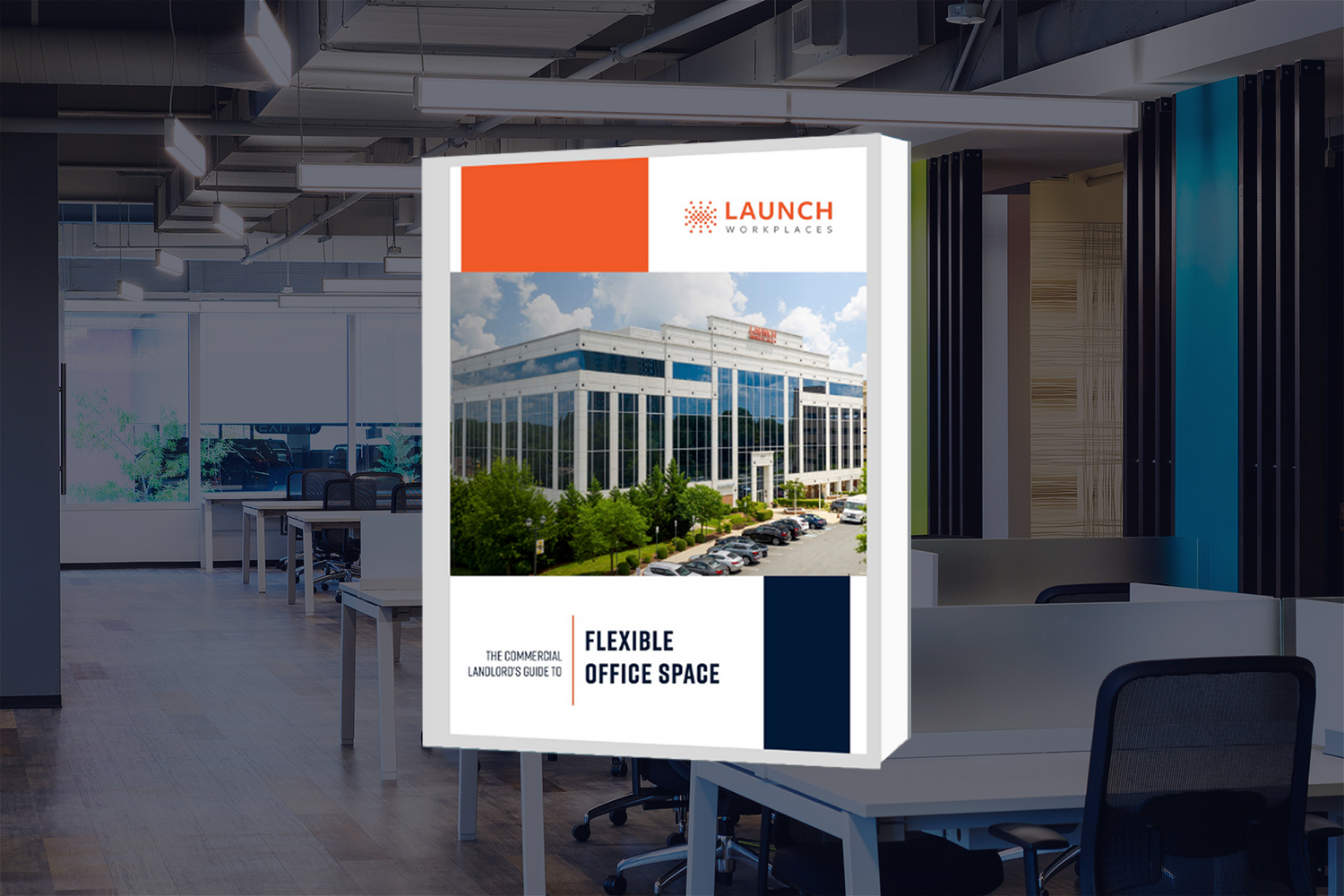I’ve noticed a trend in the past few years—one that I think is incredibly damaging to the office space industry and is a massive disservice to commercial building owners.
Lately, there have been a lot of real estate brokers turning into matchmakers when it comes to flexible office space rather than taking initiative to find new ways of working in the flexible office space world.
And in my opinion, this doesn’t help anyone. In fact, it’s actually creating massive challenges for everyone involved.
In this article, I’ll explain exactly what I mean, why I think it’s problematic, and what could be done differently.

How Commercial Real Estate Brokers Are Trying to Become “Matchmakers” for the Flexible Office Space Industry
Pre-COVID, a large-scale flexible office space provider would hire a broker to find a certain amount of space in a certain part of town.
The broker would go find it, negotiate with the building owner, sign a 10 or 15-year lease, and then charge their fee to the landlord.
For the sake of math in this article, let’s look at it their fee structure this way:
100,000 square feet x $50 per square foot x 15 years x 4% commission = $3,000,000 fee
The building owner would say thanks and cut them a cheque for three million dollars.
But then, COVID-19 hit.
Suddenly, we’re living in a world where people can’t go to the office, but building owners are still on the hook for the money they borrowed from their financiers.
And, if that owner doesn’t get relief from the financier, they can’t pass that relief to the coworking space operator who, in turn, can’t provide relief for tenants.
After all, the bank still has to get paid.
As a result, a lot of people suffered.
Fast-forward to today—post-pandemic, for all intents and purposes—and a lot of people have decided to pivot towards management agreements in revenue models.
All of a sudden, flexible office space operators are determined to avoid signing a lease.
So, now, that big operator who would previously hire a broker to find them their 100,000 square feet of space has changed their tune.
Now, they want 100,000 square feet of space in that same part of town—but they’re not signing a lease.
And that’s where things get sticky.
The broker is faced with this proposition, and they’re wondering how they’re going to get paid. If there’s no lease, they don’t get their four percent commission.
Suddenly, this broker who was feasting on the rapid growth of WeWork—and all of the companies that mimicked WeWork—is faced with the big question of where their money is coming from.
Here’s the hard truth—the one that brokers don’t want to hear: flexible office space operators—and building owners who are interested in flexible office space—don’t need you anymore.
Flexible office space operators can now talk directly to building owners and:
- Educate them about what they do
- Explain how they do it
- Present their proforma
- Negotiate their own terms
The broker is no longer needed to make these deals happen. They have no role in this new model.
And the problem is that there’s no adaptation in the broker world to realize that things are changing.
They’re not finding ways to provide real value for their clients anymore. It’s all about finding a way to get paid—even if it’s not in their clients’ best interest.
So, what’s the outcome?
Instead of being Joe Blow Broker, now they’re becoming Joe Blow Flexible Operator Specialists. And their game plan is to play matchmaker, introducing building owners to flexible office space operators and charging a fee to do so.
But this concept is inherently flawed.

Why Matchmaking Brokers Don’t Really Help Anyone
In this new world of commercial brokers turned matchmakers, the idea is that they’ll introduce building owners to flexible office space operators and charge, say, five dollars per square foot as their fee.
But there are a few big daunting problem with the concept of charging a fee to facilitate introductions:
- Brokers aren’t actually doing the research or educating themselves enough to connect building owners with the flexible office space operators that are right for their building and needs
- Building owners are realizing that they don’t need to pay five dollars per square foot when they can just post something on their website seeking a flexible office space operator and 20 of them will come out of the woodwork
- Brokers don’t actually know enough about the flexible office space world to bring value or be helpful during negotiations between operators and business owners
Let me be clear: my opinion on this topic isn’t speculative.
We’ve met with a handful of brokers in the past six months alone who have pitched this exact proposition.
By their nature, brokers want to add value. So, once the introduction is made, they don’t just sit back and let operators make their pitches to building owners.
Instead, they try to jump in and contribute to the conversation—but the problem is that most of what they’re saying is wrong.
They offer up incorrect information, contribute ideas that are infeasible, and ultimately bring confusion into a situation that could otherwise be incredibly simple.
This isn’t always malicious. In many cases, it’s just a general lack of awareness.
But that lack of awareness is why brokers aren’t needed in this equation anymore. The operator shouldn’t have to pay you for an introduction, and neither should the building owners.
The Right Way for Brokers to Handle This New Scenario
Unfortunately, there hasn’t been any innovation from brokers to come up with a new solution.
And the reality is that we’re not working with 8.2 billion square feet of office space.
It’s simple math: JLL keeps saying that 30% of commercial office space will become flexible. So, logically, only 30% of brokers need to understand the flexible office space world and create an innovative solution to make it a win-win-win for themselves, building owners, and flexible office space operators.
But so far, I haven’t met a group yet that has proposed any value proposition to a building owner that’s different from traditional lease value propositions.
Instead, they’re searching for a minimum guarantee over the life of the project—for the sake of example, if the building is worth $20 per square, the brokers want $5 per square foot in year one, $7 per square foot in year two, and then $10 per square foot for the rest of the deal.
I don’t want to speak for the entire spectrum of brokers, but I can safely paint with a broad brush and say that what most of them are doing is just trying to take this model and just squish it back into something transactional because it’s historic, it’s easy, and it gets them in and out of a deal with a fee based on its lifetime.
That’s not a relationship with an owner. It’s transactional. It’s exactly the way the world was before the pandemic. And it’s a byproduct of the stubborn, lazy attitude of commercial brokers refusing to evolve from the way they’ve always done things.
They’re convincing building owners that there are flex operators out there who will respond to this request and are basing their value upon that.
And while there are a few large operators who will, there are a ton of smaller operators who won’t.
But those large operators aren’t always the best fit for the building or the owner based on certain critical characteristics.
Owners don’t usually know what’s the best option for them either—it’s not their job to know.
And as a result, brokers are getting in the way of real, true competition and doing things based on their own best interests—not those of their clients, the operators, the coworking industry at large.
So, what’s the solution?
Ultimately, brokers need to get out of the way because they’re messing everything up.
Launch will not bid on projects that require minimum rents. But we’re also completely transparent about where we don’t fit and who we’re not right for.
As a building owner, you need to ask yourself one big question: how did your broker go from being an expert in commercial real estate to being an expert in the flexible office space industry? What are their credentials for finding you the right partner?
Many of them know a few buzzwords and have some templates and then sell it as the gospel.
But that doesn’t mean they really know what’s best for you.
They’re simply seeing a trend and latching onto it.
How can brokers evolve to bring real value to the flexible office space world?
They need to start looking for ways to properly educate themselves on the flexible office space industry—they need to create a formula for how to pair building owners with the flexible office space operators that will be the best fit for them.
This is how they can add value and credibility into the mix: by becoming industry experts and sharing that expertise with building owners.
But for now, everyone’s just busy trying to get in the way of a deal, lock in a transaction, and get paid.
Everyone wants their million dollars tomorrow. But if they’re not going to take the time to do it the right way, then they need to stay out of the way.
So, in the meantime, if you’re a building owner and you want to learn more about the flexible office industry directly from a flexible office space operator, get in touch with me today. I’d be happy to talk you through the benefits it can offer you.




